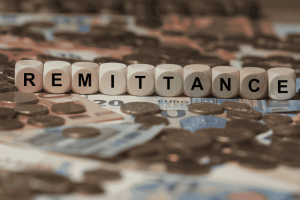Financial stability often feels like a distant goal—something we work toward over years of saving, investing, and budgeting. But in reality, the foundation of long-term financial health is built not through dramatic changes or one-time windfalls, but through consistent, small habits practiced daily. Across Asia, individuals from all walks of life are discovering that these minor changes—choosing to cook at home, automating savings, or checking expenses weekly—can transform their relationship with money over time.
Why Small Habits Matter More Than Big Moves

In personal finance, small habits act like compound interest: their effects may seem invisible at first, but they build momentum and grow over time. While a large bonus or investment win can give you a short-term boost, sustainable financial stability often comes from steady behavior—just like health is built through daily exercise, not a single workout.
Consider the impact of saving just USD 3 (about MYR 14, THB 100, or INR 250) per day. Over a year, that’s more than USD 1,000—enough to fund a holiday, pay for emergency car repairs, or start an investment. When this daily habit is combined with other simple actions, the results become even more powerful.
Habit 1: Track Spending Regularly — Even for Small Purchases
One of the most effective habits for financial awareness is tracking your expenses, especially the small ones that often go unnoticed.
Embrace Mobile Wallet Data
In many Asian countries, digital wallets like Paytm (India), GrabPay (Southeast Asia), and LINE Pay (Japan, Taiwan) provide automatic transaction records. These can be reviewed weekly to understand where your money is going.
For example, Singaporeans using DBS PayLah! can instantly view spending across transport, dining, and shopping categories. This kind of data-driven insight makes it easier to spot patterns, such as spending too much on delivery apps or underestimating transportation costs.
How to Start:
- Review your mobile wallet or bank app weekly.
- Categorize your expenses: fixed (rent, bills), variable (food, transport), and unnecessary (impulse buys).
- Reflect on areas where you can reduce without feeling deprived.
Habit 2: Automate Savings, No Matter How Small
Saving money doesn’t require large income or discipline—it requires consistency. Automating savings is one of the most powerful ways to remove friction and make the habit stick.
Local Examples of Smart Automation
- In Malaysia, apps like HelloGold allow users to automatically invest small amounts in gold—starting from just RM 1.
- In India, Scripbox and Groww enable automated SIPs (Systematic Investment Plans), letting people invest in mutual funds monthly, even with low minimums.
- In the Philippines, GCash’s GSave integrates banking and saving within the e-wallet itself, helping users stash away small amounts without needing a separate account.
These small, automatic transfers create a “pay yourself first” mindset—critical for building emergency funds or planning for short-term goals.
Habit 3: Set Micro-Goals with Meaningful Rewards

Financial goals don’t have to be huge to be motivating. In fact, breaking larger goals into smaller milestones makes them more achievable.
From Micro-Goals to Big Wins
Instead of aiming to save USD 1,000, start with saving USD 100 in one month. Once achieved, reward yourself with a small treat—a meal out, a movie, or a day trip.
This approach is particularly effective for younger earners or freelancers in cities like Jakarta, Bangkok, or Kuala Lumpur, where income can vary monthly. Micro-goals create structure without feeling overwhelming.
Practical Tip:
- Use apps with goal-tracking features such as Monny, Spendee, or YNAB (You Need A Budget).
- Create short-term goals for quarterly savings or debt repayment.
- Visually track progress with charts or stickers to stay motivated.
Habit 4: Build a No-Spend Day or Week into Your Routine
A “no-spend day” is a powerful reset that helps you become more mindful of consumption and reduce unnecessary expenses. It doesn’t mean going without necessities—just avoiding non-essential purchases.
In cities like Bangkok, where street food and shopping temptations are constant, building a regular no-spend day can train better judgment over impulse purchases. Similarly, in Tokyo or Seoul, choosing a weekend to avoid cafes and convenience store treats can reveal just how often money slips away on small indulgences.
How to Make It Work:
- Pick a consistent day (e.g., every Monday or Sunday).
- Plan ahead by bringing lunch or snacks.
- Reflect on how much you saved—and what that money could do over time.
Habit 5: Practice Conscious Credit Card Use
In many parts of Asia, credit card ownership is growing—especially in urban centers like Hong Kong, Singapore, and Bangkok. While cards offer convenience and rewards, they can also encourage overspending.
Smart Habits for Credit Card Users:
- Set a weekly reminder to check your balance.
- Use one primary card to track points and manage spending.
- Treat your credit card like a debit card: never spend more than you can pay off by the due date.
Many neobanks and fintech platforms now offer real-time transaction notifications, which can help reinforce accountability. For example, India’s Fi Money app sends immediate alerts and even offers spending insights categorized by type and merchant.
Habit 6: Review Subscriptions and Auto-Renewals Monthly
Streaming, fitness apps, cloud storage, online tools—many of us subscribe and forget. A simple monthly habit of reviewing subscriptions can uncover unnecessary charges.
In Singapore, banks like OCBC and UOB allow users to view recurring charges directly from their apps. Some even offer alerts for upcoming renewals. Taking a few minutes each month to cancel unused services can save hundreds over the year.
Tip:
- Set a calendar reminder for the 1st of each month.
- Look for duplicated services (e.g., multiple music or movie platforms).
- Check if any local platforms offer family plans or student discounts.
Habit 7: Invest in Learning Just 10 Minutes a Week
Building financial stability isn’t just about managing money—it’s also about improving your understanding of how money works.
Learning in Local Languages
In many Asian countries, financial literacy content is now widely available in native languages:
- Vietnam has YouTube creators explaining personal finance and investment basics in a casual, relatable way.
- In India, creators on platforms like Kuvera and Groww publish content in Hindi and regional languages.
- In Thailand, local banks such as Kasikornbank and SCB provide bite-sized personal finance lessons via their apps.
Spending just 10 minutes a week learning about interest, inflation, or basic investing builds confidence and empowers smarter financial decisions over time.
Real Change Begins with Small, Consistent Steps

The idea that financial stability is only possible through big changes or high income is a myth. Across Asia, more and more people are realizing that it’s the small daily decisions—not grand gestures—that lay the groundwork for lasting security.
Whether it’s automating a small savings transfer, skipping a café visit once a week, or learning one new financial concept per month, these habits add up. Over time, they become part of your lifestyle—quietly guiding your choices, strengthening your financial position, and reducing stress.
So instead of aiming for perfection, aim for progress. One habit, one day, one decision at a time. That’s where true financial stability begins.









